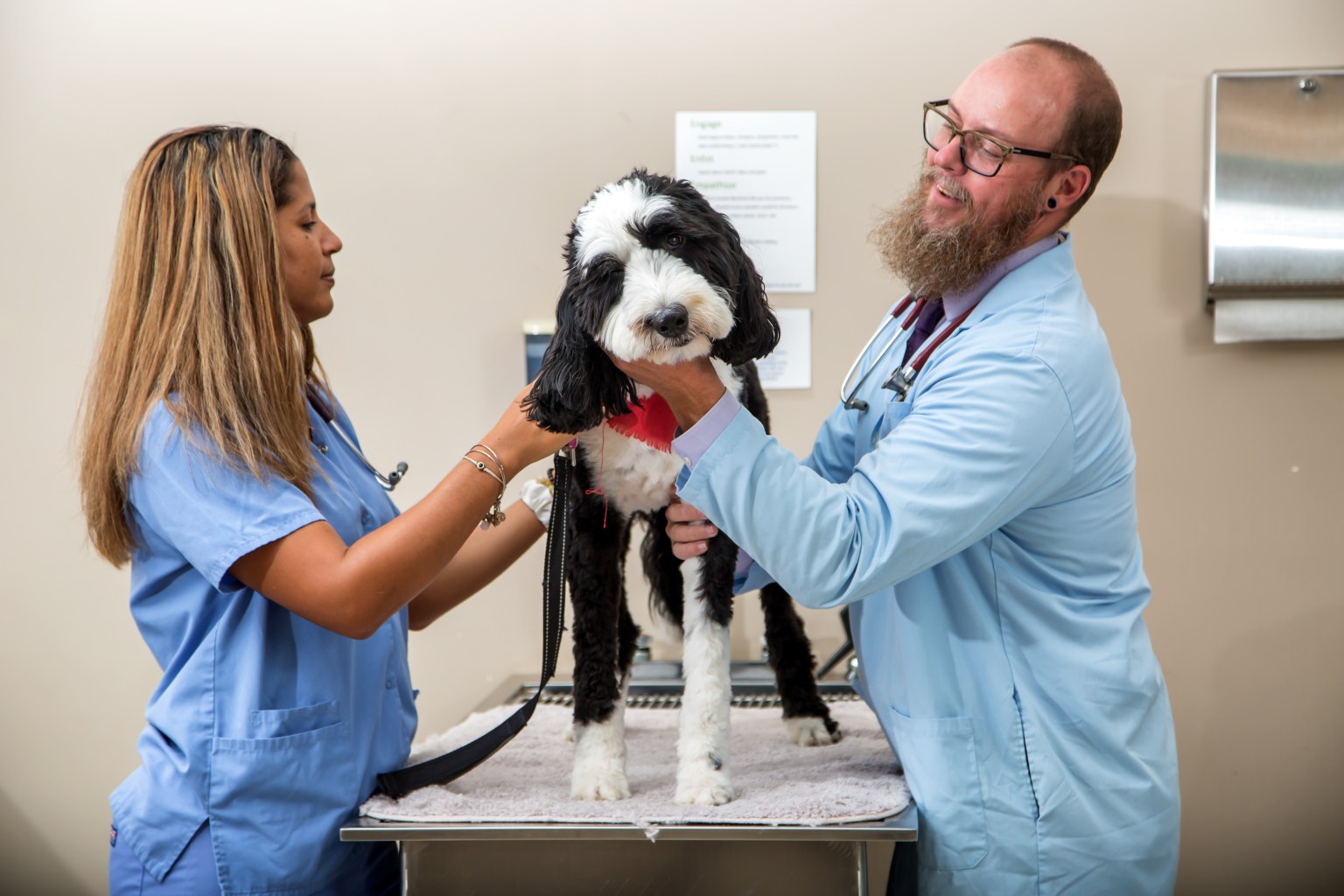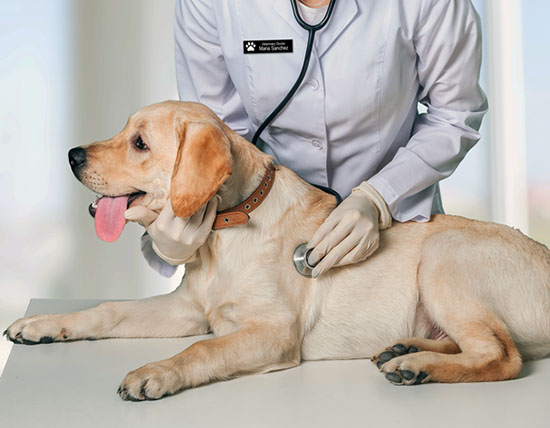Veterinary Oncologist clarifies frequent treatment approaches for canine tumors
Comprehensive Overview to the Services Supplied by a Vet Oncologist
Veterinary oncology includes a broad range of services targeted at identifying and dealing with cancer in pet dogs. Veterinary Oncology Services. Oncologists use advanced diagnostic techniques and offer various therapy choices customized per pet's demands. They likewise focus on encouraging treatment and give valuable resources for pet owners. Understanding these services is crucial for making notified decisions. What specific aspects of veterinary oncology can especially impact a family pet's therapy trip?
Understanding Vet Oncology
Veterinary oncology is a customized area concentrated on detecting and dealing with cancer cells in animals. This discipline encompasses a wide variety of strategies, from medical therapies such as radiation treatment and immunotherapy to medical interventions targeted at eliminating tumors. Veterinary oncologists are trained to recognize the one-of-a-kind symptoms of cancer in numerous varieties, allowing them to customize treatment strategies to specific people.
In addition to traditional treatments, vet oncology stresses supportive care, which plays a necessary role in boosting the lifestyle for afflicted pets. This includes discomfort administration, nutritional support, and palliative care options. Collaboration with pet dog owners is critical, as they are integral to decision-making regarding their pets' treatment courses. As research breakthroughs, vet oncology remains to progress, offering new hope and improved outcomes for animals identified with cancer cells. Overall, this area is basic for attending to the intricacies of cancer in buddy animals.
Advanced Diagnostic Techniques
Advanced diagnostic techniques play a crucial role in vet oncology, giving essential understandings right into the presence and level of cancer in pets. Imaging techniques such as ultrasound, CT scans, and MRI are generally used to picture tumors and evaluate their attributes. Additionally, biopsy procedures are vital for acquiring tissue samples, enabling clear-cut medical diagnosis and customized therapy plans.
Imaging Modalities Utilized
Imaging modalities play a vital duty in the medical diagnosis and management of cancer cells in pets. Veterinary oncologists make use of different innovative imaging strategies to analyze lump presence, transition, and size. Radiography, or X-rays, uses an initial sight of bone and upper body problems, while ultrasound offers real-time imaging of soft tissues, enabling for detailed assessment of interior organs. Calculated tomography (CT) boosts visualization of complicated physiological structures and makes it possible for 3D restorations, assisting in precise lump localization. Magnetic vibration imaging (MRI) is important for soft cells distinction, particularly in brain tumors. Additionally, nuclear medicine techniques such as positron exhaust tomography (ANIMAL) assistance identify metabolic task within lumps. Collectively, these modalities improve analysis precision, assisting reliable therapy approaches for oncological individuals.
Biopsy Procedures Described
Complying with the first evaluation via imaging techniques, obtaining a clear-cut diagnosis commonly calls for cells tasting with biopsy treatments. Veterinary oncologists utilize different biopsy methods based on the tumor's location and features. Great needle goal (FNA) is a minimally invasive method that draws out cells for cytological assessment, perfect for shallow masses. Core needle biopsies supply larger tissue examples and work for deeper growths, permitting histopathological analysis. Surgical biopsies entail excising a section or the entire tumor, facilitating complete examination. These treatments not just verify the presence of cancer however likewise help identify its type and grade, assisting treatment choices. Each biopsy approach is chosen carefully to stabilize diagnostic accuracy with client safety and security and comfort.
Therapy Options for Cancer in Pet dogs
When a pet is detected with cancer, a variety of therapy alternatives appear to help improve and handle the disease top quality of life. Vet oncologists commonly suggest a multidisciplinary method customized to the specific pet's requirements, which may consist of surgical procedure, radiation therapy, immunotherapy, or alternative therapies.
Surgical treatment is typically employed to remove lumps and afflicted tissues, potentially bring about total remission sometimes. Radiation treatment aims to ruin and target cancer cells, minimizing growth size and alleviating signs - Veterinary Cancer Specialist. Immunotherapy utilizes the family pet's immune system to combat cancer more successfully, while different treatments could include acupuncture or herbal supplements to sustain general health
Each treatment choice carries its very own benefits and threats, and veterinary oncologists work carefully with pet dog owners to develop a comprehensive plan that straightens with the pet's particular medical diagnosis and the owner's wishes. The best objective is to improve the pet dog's convenience and high quality of life throughout their cancer journey.
Chemotherapy for Pets
Radiation treatment is an usual treatment alternative for pets diagnosed with cancer cells and is often utilized combined with various other treatments laid out by vet oncologists. This treatment involves the management of details drugs developed to target and damage cancer cells, consequently reducing lump size and preventing the spread of the condition. Vet oncologists tailor radiation treatment methods based on the kind of cancer cells, the pet's general health and wellness, and the wanted therapy end result.
Adverse effects can take place, as these drugs might also impact healthy and balanced cells. Usual reactions include nausea, throwing up, and short-lived changes in hunger - Veterinary Oncologist. Veterinary oncologists are outfitted to handle these side effects properly, ensuring the family pet's comfort throughout the treatment procedure. Regular monitoring with blood examinations and follow-up appointments is vital to assess the animal's response to chemotherapy and make needed adjustments. Ultimately, chemotherapy can supply considerable benefits, boosting the lifestyle for animals dealing with cancer medical diagnoses

Radiation Treatment in Veterinary Medication
Radiation treatment acts as a reliable therapy choice for pets diagnosed with localized tumors, offering a targeted strategy to cancer monitoring. This technique utilizes high-energy radiation to harm the DNA of cancer cells, hindering their capacity to multiply. It is especially advantageous for tumors that are not amenable to medical removal or for situations where surgical procedure might not be viable due to the tumor's area.
Veterinary oncologists customize radiation procedures based upon growth place, dimension, and type, along with the family pet's total wellness. Treatment can be delivered through exterior light beam radiation or brachytherapy, each with distinctive benefits. Usually, numerous sessions are called for to maximize effectiveness while lessening side results.
Pet dogs may experience short-term responses such as skin irritability, the total purpose is to reduce Board Certified Veterinary Oncologist tumors and reduce signs and symptoms, ultimately boosting the animal's diagnosis and high quality of life. Accordingly, radiation therapy plays an important duty in detailed cancer treatment.
Palliative Care and Lifestyle
Palliative treatment in veterinary oncology concentrates on enhancing the top quality of life for family pets encountering terminal health problems, guaranteeing convenience and self-respect in their final days. This specific approach prioritizes pain monitoring, sign control, and psychological support. Vet oncologists examine each family pet's private requirements, tailoring treatments to relieve discomfort and boost general well-being.
Techniques might include administering drugs for discomfort relief, taking care of nausea or vomiting, and dealing with various other stressful signs. Additionally, dietary support is typically provided to maintain stamina and boost cravings. The psychological element of palliative treatment is equally important; developing a calm environment aids lower anxiousness for both pet and proprietor.
Eventually, the goal of palliative care is to enable pet dogs to enjoy their continuing to be time with as much delight and dignity as possible. By concentrating on convenience and high quality of life, veterinary oncologists play an important duty in making sure that pets and their families browse this difficult journey with concern and understanding.
Assistance for Animal Owners Throughout Therapy

Emotional Guidance for Owners
Charting the emotional landscape during a pet dog's cancer therapy can be a frustrating experience for owners. The uncertainty bordering diagnosis and prognosis can cause sensations of unhappiness, anxiety, and helplessness. Veterinary oncologists acknowledge the significance of psychological support and typically provide advice to assist owners browse this tough trip. Communication is essential; reviewing treatment options and possible results can minimize some anxieties. Additionally, using peace of mind that emotional feedbacks stand fosters a helpful setting. Many oncology clinics may likewise recommend support system or counseling solutions tailored for animal proprietors, helping with common experiences. Encouraging proprietors to prioritize self-care throughout this moment is crucial, as their psychological well-being directly affects their pet's convenience and general treatment experience.

Resources and Educational Materials
Steering with the complexities of an animal's cancer therapy can be frightening for proprietors, making access to dependable resources and educational products necessary. Veterinary oncologists commonly supply a range of handouts, pamphlets, and online products that describe therapy choices, potential side impacts, and care approaches. These sources aid demystify the procedure and equip pet proprietors to make informed choices. Furthermore, many oncology centers use accessibility to sustain groups and discussion forums where owners can link with others facing comparable difficulties, cultivating a feeling of community. Educational seminars and webinars conducted by veterinary professionals further improve understanding, guaranteeing that proprietors are fully equipped to browse their family pet's trip with cancer cells therapy with self-confidence and knowledge.
Regularly Asked Inquiries
How Can I Prepare My Family Pet for a Veterinary Oncology Visit?
Preparing a pet dog for a veterinary oncology browse through entails event clinical documents, noting signs and symptoms, and ensuring the family pet is comfy. A tranquil disposition and familiar things can aid reduce stress and anxiety throughout the visit.
What Are the Indicators My Family Pet May Have Cancer Cells?
Indicators that an animal might have cancer consist of unexplained weight-loss, relentless vomiting or diarrhea, unusual swellings or swellings, lethargy, adjustments in cravings, problem breathing, and modifications in behavior. Trigger veterinary interest is crucial.
How Can I Assistance My Family Pet Emotionally During Therapy?
Sustaining a pet dog mentally during treatment includes offering convenience, preserving regimens, using gentle love, and making sure a tranquil setting. Participating in quiet play and regular companionship aids reduce stress and fosters a feeling of safety.
Are There Alternative Therapies for Family Pets With Cancer cells?
Alternate therapies for pet dogs with cancer cells include acupuncture, organic treatments, and dietary assistance. These methods might enhance standard therapies, advertising general wellness. Consulting with a veterinarian is vital for efficient and secure integration of alternative treatments.
What Prices Should I Anticipate for Vet Oncology Providers?
The expected costs for veterinary oncology solutions can differ substantially, typically influenced by diagnostics, treatments, and continuous treatment. Animal proprietors should plan for expenses varying from assessments to specialized therapies, mirroring the intricacy of cancer management.
Cooperation with family pet owners is important, as they are essential to decision-making concerning their pet dogs' treatment paths. Each therapy alternative carries its very own benefits and risks, and vet oncologists work very closely with pet proprietors to create a detailed plan that aligns with the family pet's details diagnosis and the proprietor's dreams. Pets might experience momentary responses such as skin irritation, the total objective is to reduce lumps and reduce signs and symptoms, eventually enhancing the animal's prognosis and top quality of life. Support for animal owners throughout therapy is important in guiding through the emotional difficulties connected with a pet's cancer cells diagnosis. Preparing an animal for a veterinary oncology browse through entails celebration medical records, noting signs, and making certain the family pet is comfortable.